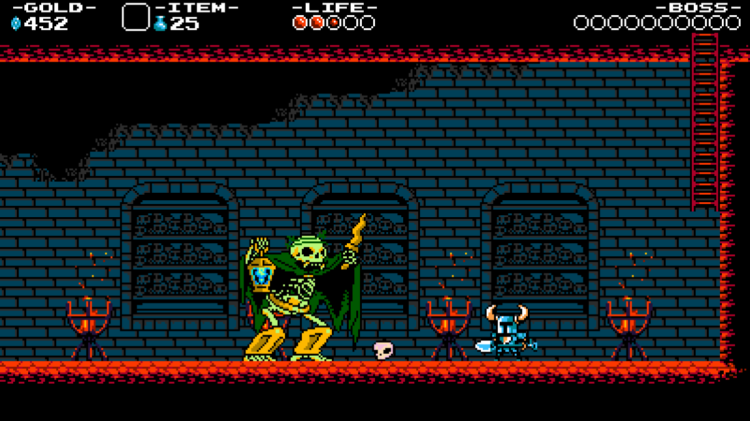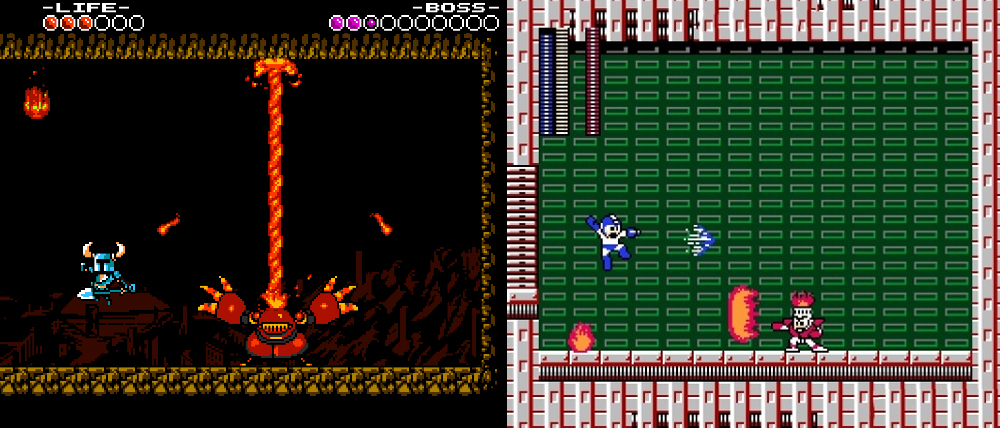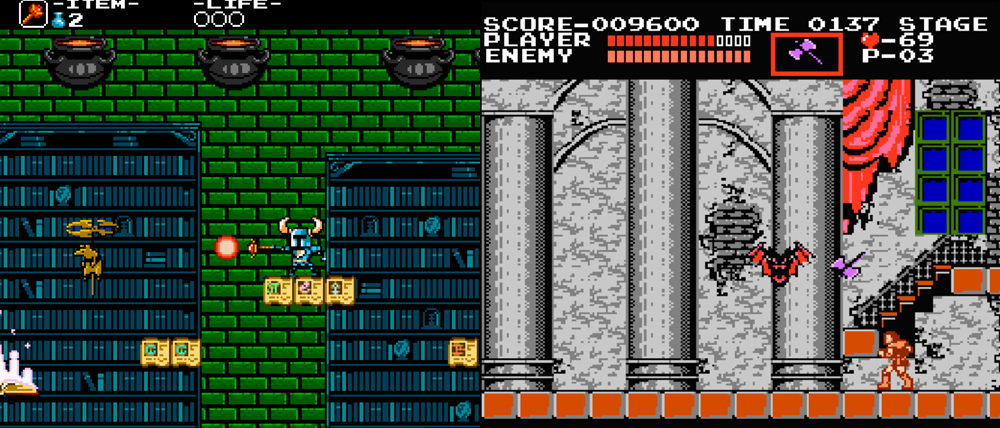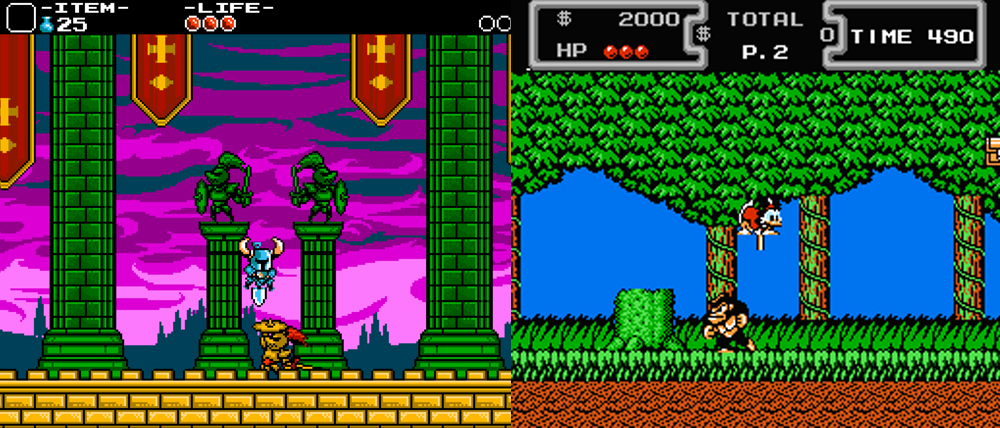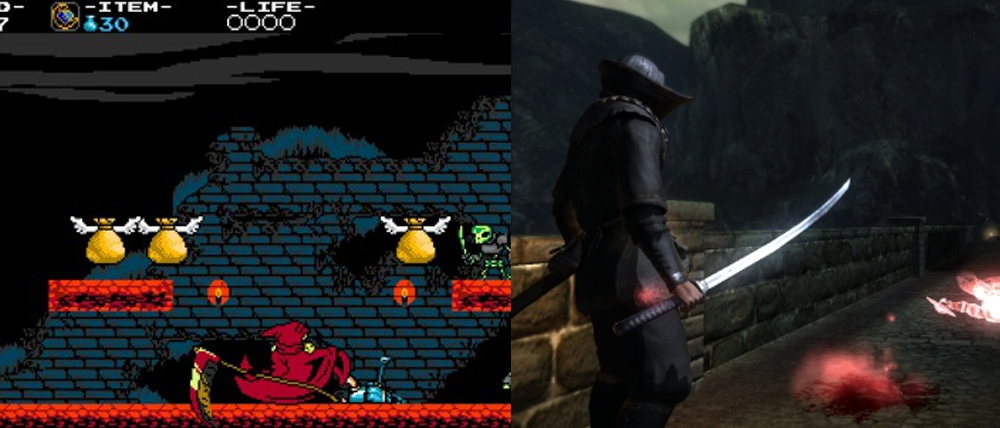Shovel Knight obviously looks like an 8-bit game from the Nintendo Entertainment System, but it borrows a lot more than pixels from that era’s classics.
Of course, Shovel Knight took all of that inspiration and created something great, but it’s still fun to take a close look at each retro adventure and see exactly what the recent action-platformer for the Wii U, 3DS, and PC borrowed from it.
So, that’s exactly what we did. Come with us and discover how Shovel Knight raided the classics (and a more recent series) for a bundle of ideas that came together to form a modern achievement.
Mega Man
Structurally, Shovel Knight takes a lot of inspiration from Mega Man. In both action-platformers, you have eight themed bosses, and each has their own level. And while you can’t tackle them in any order you want like in Mega Man, Shovel Knight does give you some flexibility by letting you pick levels from an expanding world map.
The physics of Shovel Knight also feel similar to Mega Man. You have a lot of midair control of your jump, and enemy attacks knock you back bit. The main character’s pixellated anatomy even resembles the Blue Bomber.
Super Mario Bros.
Remember that world map we just talked about? It really reminds us of the ones you see in a lot of Mario games, specifically Super Mario Bros. 3, Super Mario World, and the New Super Mario Bros. series. Also, just like in the Mario franchise, random enemies wander the field. Bump into them, and you have a fight, but you’re always rewarded when you win.
Castlevania
After Mega Man, Castlevania is clearly the biggest inspiration for Shovel Knight. Like in Castlevania, you have access to a number of items that act as secondary attacks. Also, as in most Castlevania games, you use these items by pressing up and the attack button at the same time.
Many of the items are even straight clones from the Castlevania series. The anchor, for example, arcs upward just like the ax, and the fireball shoots in a straight path similar to the knife.
You can also explore 2D towns and talk to its citizens, just like you could in Castlevania 2: Simon’s Quest.
The Legend of Zelda
Shovel Knight doesn’t borrow much too much Nintendo’s famous adventure franchise, but you can find a few nods. Zelda II: The Adventure of Link was the series’ lone 2D entry (we’re not counting those terrible CD-i games). Like Castlevania, it also featured 2D towns with helpful citizens, similar to Shovel Knight’s. Your midair, downward shovel attack also feels similar to one of Link’s moves from Zelda II.
Also, many Zelda games give your melee weapon a ranged burst if you’re at full health, a feature you can eventually unlock in Shovel Knight.
DuckTales
DuckTales for the Nintendo Entertainment System was also created by Mega Man developer Capcom, and it featured a similar engine. It’s not surprising, then, that Shovel Knight feels a lot like both classic platformers. In DuckTales, players could use Scrooge McDuck’s cane to constantly bounce off of the ground and enemies. While you can’t bounce off just anything with your shovel, you can use your downward attack to hop off of enemies and certain blocks.
However, you can unlock a “DuckTales mode” in Shovel Knight, which starts you with 99,999 gold and can bounce off of the ground. It also makes enemies much stronger. You can unlock the mode by entering TNFCGUGO as your name when starting a new game.
Dark Souls
OK, so Dark Souls, its direct sequel, and its predecessor (Demon’s Souls) aren’t exactly retro, but Shovel Knight takes just as much inspiration from those modern examples of gaming brutality. In that franchise, you use a currency of souls to buy all sorts of important things. If you die, you lose all of the souls you were carrying. However, you can get them back if you can make it back to your corpse before dying again.
Shovel Knight uses a similar idea, but it’s not quite as punishing. When you die, a chunk of the gold you were carrying turns into three floating bags of money around the area you perished. Just like in Dark Souls, you can get your money back as long as you don’t die again before you reach the floating sacks of riches.

VentureBeat's mission is to be a digital town square for technical decision-makers to gain knowledge about transformative enterprise technology and transact. Learn More
